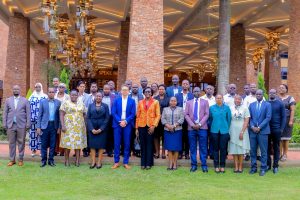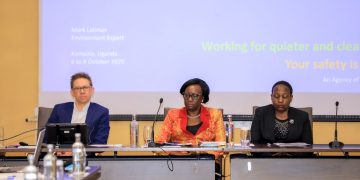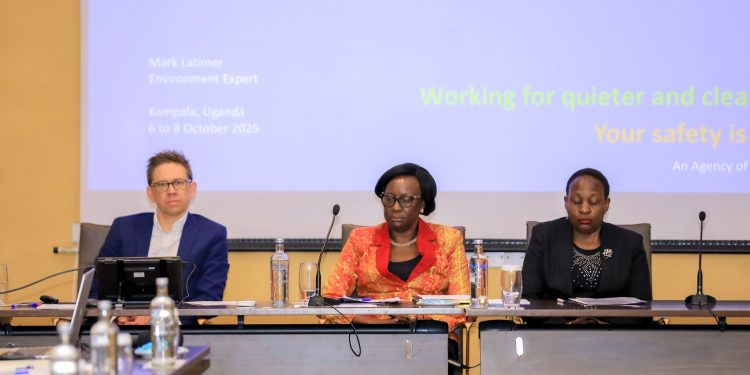Uganda has reaffirmed its determination to reduce carbon emissions from the aviation sector through the adoption of Sustainable Aviation Fuels (SAF) and active participation in the Carbon Offsetting and Reduction Scheme for International Aviation (CORSIA).
The pledge was emphasized at a three-day national workshop on CORSIA, SAF, and CORSIA Eligible Fuels (CEF), held at Speke Resort Munyonyo. The forum was organised by the Uganda Civil Aviation Authority (UCAA) in partnership with the EU-CORSIA Africa and Caribbean Project, drawing aviation stakeholders, government officials, environmental experts, and international partners.
UCAA Deputy Director General, Olive Birungi Lumonya, representing Director General Fred Bamwesigye, highlighted Uganda’s alignment with global climate goals under the International Civil Aviation Organization (ICAO).
“Uganda is committed to joining the international community in implementing ICAO’s standards and policies aimed at reducing aviation’s carbon footprint,” Lumonya said. “As an ICAO Member State, Uganda is taking concrete steps to advance environmental protection in aviation, in line with the principle of No Country Left Behind.”

Lumonya announced that UCAA had recently installed an Aviation Emissions Data Management System (AEDMS) with support from the EU-CORSIA Project. The system, unveiled just weeks before the workshop, is designed to collect, process, and verify airline fuel consumption and greenhouse gas emissions data.
“This system is crucial for transparent monitoring and reporting of emissions in compliance with CORSIA requirements,” she noted.
Beyond carbon offsetting, Uganda is prioritising the transition to sustainable aviation fuels, both as an environmental necessity and an economic opportunity.
Lumonya revealed that UCAA launched a feasibility study in April 2025 to assess the country’s SAF production potential. Preliminary results were presented during the workshop.
“Sustainable Aviation Fuels offer both environmental and economic benefits,” she said. “They provide opportunities for Ugandans to participate in a greener economy while helping our aviation industry meet global climate targets.”
Globally, ICAO has set an aspirational target to reduce aviation carbon emissions by 5% by 2030 through SAF and cleaner energy alternatives. Uganda’s engagement positions it among the early adopters in Africa.
With the first phase of the EU-CORSIA Africa and Caribbean Project set to close later this month, Lumonya urged the European Union to extend the initiative into a second phase.
She said continued support would be vital in enabling African countries, including Uganda, to fully develop SAF production capacity and meet international climate commitments.
Adding weight to its environmental drive, Uganda has secured a seat on the ICAO Council, the highest decision-making body of the UN aviation agency. The election took place during the 42nd ICAO General Assembly in Montreal, Canada.
Lumonya said this achievement marked a strategic breakthrough for the country and the continent.
“The ICAO Council seat is a significant milestone that allows Uganda and Africa at large to influence global decisions on sustainable development and climate change in aviation,” she emphasized.











